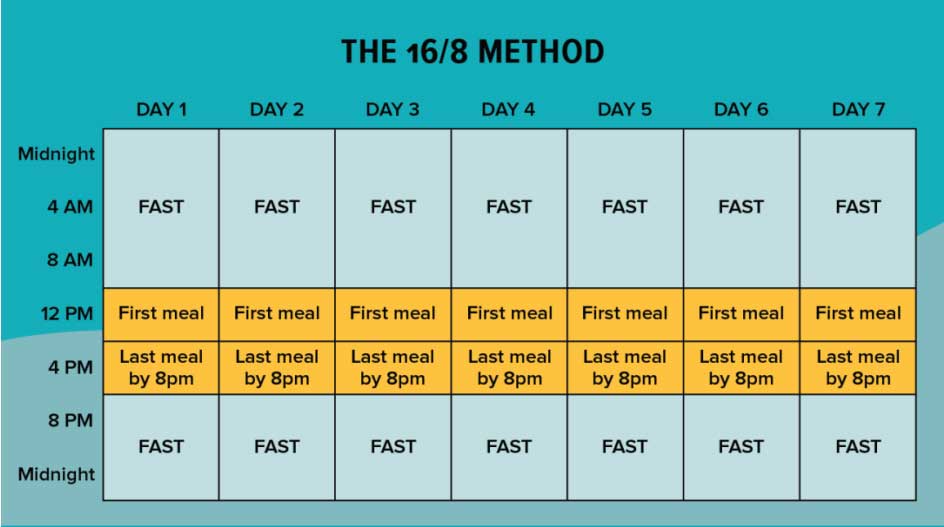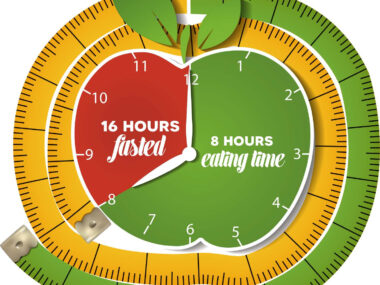Intermittent Fasting: What Is It? Human-friendly explanations
It is one of the fastest-growing health and fitness trends in the world today to practice intermittent fasting.
A fast is followed by an eating cycle.
Researchers have shown that this can lead to weight loss, improve metabolic health, protect against diseases and perhaps even extend your life.
We explain intermittent fasting in this article, and why it is relevant.
Intermittent Fasting: What Is It?
It is an eating pattern in which you alternate eating and fasting periods.
Foods are not listed, but rather when to eat them.
In intermittent fasting, eating periods are separated from fasting periods, which are common among different methods.
The majority of people fast while they sleep every day. A little bit of extension can be enough to achieve intermittent fasting.
In order to do this, skip breakfast, eat your first and last meal at noon, and then skip lunch.
During the course of a single day, you will fast for 16 hours and eat for eight hours. Intermittent fasting in this format is called the 16/8 method.
Fasting intermittently is not as difficult as you can think of. Fasting has been reported to make people feel better and give them more energy.
When your body becomes used to being without food for long periods of time, hunger isn’t as much of an issue.
In the fasting period, you are not allowed to eat, but you can drink water, coffee, tea, and other non-calorie drinks.
The fasting period for some intermittent fasting regimens includes eating low-calorie food.
As long as the supplements do not contain calories, they can be taken while fasting.
IN SUMMARY:
When you cycle between eating and fasting, it is called intermittent fasting (IF). Health and fitness experts support this trend, which is becoming very popular.
Why should I fast?
Since ancient times, humans have fasted. Food was sometimes scarce, so people ate out of necessity.
In other cases, it was done religiously. There are a number of religions that mandate fasting, including Islam, Christianity and Buddhism. Those who are sick instinctively tend to fast, as do humans and other animals.
No fasting is “unnatural,” and our bodies are designed to handle extended periods of starvation. During a time of famine, our bodies undergo all kinds of changes when we do not eat. In addition to hormones and genes, it also deals with key cell repair processes.
Fasting lowers blood sugar levels and insulin levels, and increases growth hormone levels dramatically. Weight loss is often achieved through intermittent fasting, as it is a very effective and simple method of restricting calories.
Various risk factors and health markers can be improved by doing it, as well as metabolic health benefits. Also, intermittent fasting has been shown to prolong life in some cases. Rodent studies have shown it to be just as effective as calorie restriction in extending lifespan.
According to some research, it may also protect against diseases, such as Alzheimer’s, Parkinson’s, and type 2 diabetes. Intermittent fasting is also convenient for some people.
In addition to making your life simpler, it also improves your health. Your life will be simpler if you plan fewer meals. It also saves time since you don’t have to prepare and clean food three or four times a day. Quite a bit.
IN SUMMARY:
Humans can benefit from fasting from time to time. Recent studies have shown that it can help you lose weight, improve metabolic health, prevent disease, and even extend your life.
Various kinds of intermittent fasting
There are several different types and methods of intermittent fasting that have emerged in the last few years.
Among the most popular are:
-
Fast between noon and 8pm each day using the 16/8 Method.
-
A 24-hour fast occurs once or twice a week when you stop eating from the evening to the evening of one day.
-
Eat 500-600 calories only two days a week on the 5:2 Diet.

The number of variations is also quite large.
IN SUMMARY:
There are various different ways to practice intermittent fasting. There are several popular diets, including 16/8, Eat-Stop-Eat, and 5:2.
Here’s what you need to know
In general, if you restrict your eating window and fast from time to time, you can improve your health.
In addition to losing fat and improving metabolic health, it simplifies your life as well.






